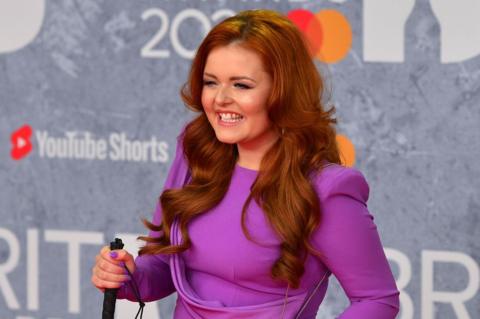And that's the quandary. IVF will edit out the very thing that has made Lucy who she is today - a journalist, advocate, author and broadcaster.
It is an emotive topic of debate. The most well-known conversation is around Down's syndrome and the number of women who choose to abort a pregnancy once their baby is tested and diagnosed as having the condition. The question is around the value people place on other peoples' lives which may not look like our own.
In 2021 campaigner Heidi Crowter, who herself has Down's syndrome, challenged legislation allowing foetuses with the condition to be aborted up until birth. She took her case to the High Court arguing the rules were discriminatory to disabled people who could live a good life. She lost the case and the subsequent argument she made at the Court of Appeal. The European Court of Human Rights (ECHR) later rejected it as well, but Heidi continues to campaign to have the law overturned.
It is something Lucy is very aware of and she and her husband have spent a long time considering.
"It's understanding that it is removing that part of me that makes me, me," Lucy says. "It's such a personal decision and I know that I'm opening myself up for possible designer baby discussions, but I know I'm doing it for the right reasons."
Lucy says first being diagnosed with IP and then losing her sight as a teenager were both traumatic events and she wants to minimise the likelihood of miscarriage to limit any future traumatic load.
She says she found it impossible to "knowingly" consider having a baby naturally once she knew the science was available to give a baby the healthiest start possible.
"If I had a baby and, unknowingly, I had a gorgeous, gorgeous baby with disabilities, I would be so thankful, so happy and amazed but knowingly having this gene? That's why we're having IVF."
IP doesn't just cause blindness, it can also cause severe epilepsy and more difficult outcomes. Lucy says having the option to ensure complications were not passed on felt like both a responsibility and a privilege previous generations did not have.
"Whether we like it or not, we have to be responsible here. Maybe a responsible issue for you, if you have IP or another genetic disorder, is to have a child naturally and we are not judging you in any shape or form, this is just our decision."
In response to their openness around this decision comments were overwhelmingly positive from Lucy's fans which she thinks might be because she is so "disability positive" in her everyday life - "I love being blind," she frequently states.
But Lucy says responses have been different around the world. When she was working in Japan and her content was reaching audiences unfamiliar with her story, she faced a lot more trolling.
"I got a lot of abusive comments that go into my spam filter questioning why I would be a mother," she says. "I know that I'm going to get a lot of abuse, but I'm just going to block them.
"I'm going to be OK. All I think about is the other mothers that have come before me who are competent, capable and resilient."

